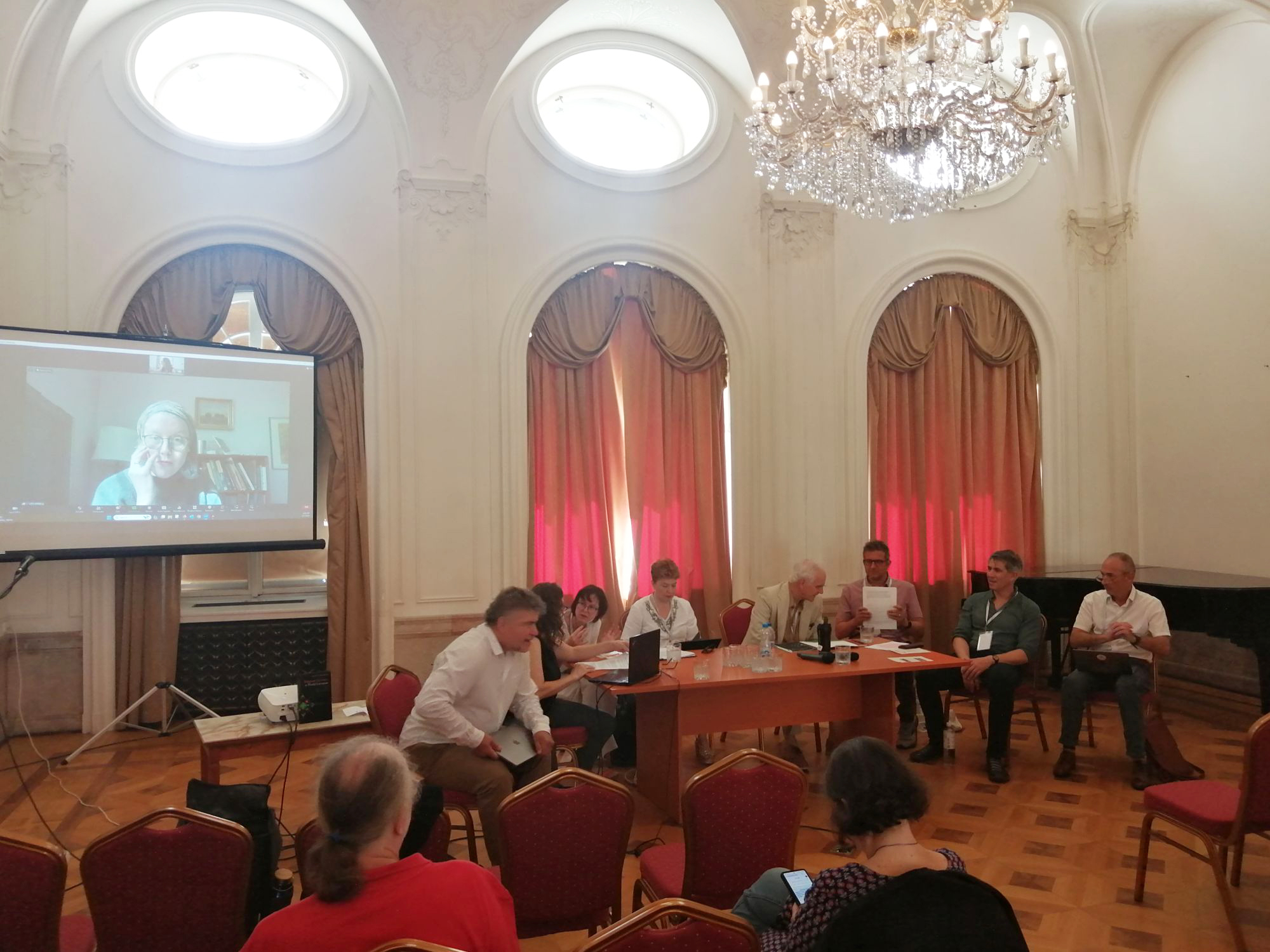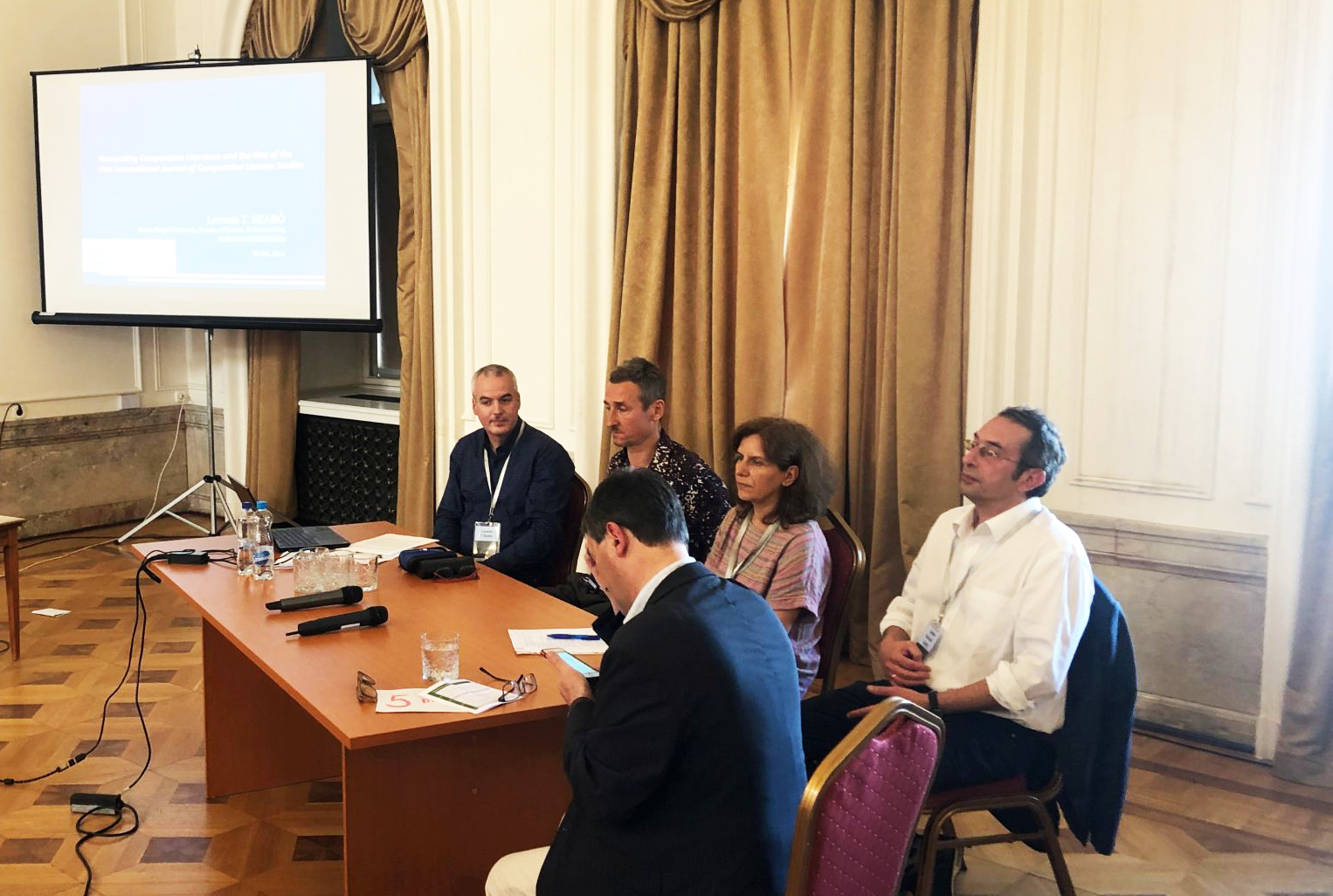In the Right Place at the Right Time: How Petőfi Became a 'Chinese' Poet
Next year, the academic division of Bloomsbury, the same publisher known for the Harry Potter series, will release a Hungarian volume that was the focus of an international conference held in Budapest in early June. We spoke with the two editors, Péter Hajdu and Zoltán Z. Varga, about the book, which examines the key milestones, authors, and texts in the global dissemination of Hungarian literature, along with its political and geopolitical contexts.
The Section of Literary Theory at the HUN-REN RCH Institute for Literary Studies, alongside the HAS–RCH Momentum Political Economy of Hungarian Literature Research Group, organised an international academic conference from 6 to 8 June to commemorate the completion of the volume Hungarian Literature as World Literature, edited by Péter Hajdu and Zoltán Z. Varga, which is set to be published next year.

In connection with the conference, Péter Hajdu highlighted that Bloomsbury’s Literatures as World Literature series, now comprising 29 volumes, has opened new dimensions in the discussion of world literature and has somewhat reshaped the international discourse on the topic. “The Eastern European region appears to be particularly active in contributing to and participating in this shaping process. The emerging trend seems to be a supranational regional dialogue,” Hajdu added. “Regardless, the fact that we are being placed on the international literary map, thanks to Bloomsbury—an international publisher increasingly releasing academic volumes—is of great prestige,” emphasised co-editor Zoltán Z. Varga. It is worth noting that the creative division of the British-American publisher Bloomsbury also oversees the Harry Potter books and plays a significant role in various other fields. Moreover, the company is continually expanding, particularly strengthening its presence in the academic sector in recent years.
Achieving breakthroughs in Hungary is challenging
According to the authors' experience, it is difficult to break through with national projects, although this is not a phenomenon unique to Hungary. When a national discourse attempts to export its literary products, the chances of achieving a significant impact abroad are typically slim.
Even if there are talented Hungarian authors whom we would like to see recognised worldwide, if they write about topics that are not trendy or of interest to the readers in target countries, they cannot expect a warm international reception, the authors revealed.
“Success, however, depends on what the target culture considers important. Even if we believe there is a talented author who should be known worldwide, this does not guarantee global success, even if we are right,” says Péter Hajdu. Nevertheless, some authors have managed to achieve this. After the end of communism in Hungary, they first gained popularity in the German market. Before that, the situation was more complex. The reason for their success in Germany is that the themes explored by Hungarian authors resonate more with German readers, along with some shared geographical and cultural ties. Additionally, the popularity and recognition of Péter Esterházy in Germany, as well as Hungary’s status as Guest of Honour at the 1999 Frankfurt Book Fair, have significantly boosted the acceptance of Hungarian writers.

Successes and failures of epochal figures
In their volume focusing on modern literature from the 15th century to the present, the history of Hungarian literature is presented through a mosaic of case studies. Regarding the rediscovery of Sándor Márai, they note that Márai was, in a sense, a forgotten author. He produced most of his best work in the 1930s and 1940s, then was forced to emigrate, continuing to write in Hungarian and missing out on the international literary network. However, in a rather unusual twist, from the 1990s onwards, he gained popularity in Europe—first in Italy, France, and then Germany—and even partially conquered the English-language book market. This can probably be explained by the fact that Western readers had a nostalgic view of the European bourgeois literature of the interwar period, which they found in Márai's work.
The case of Imre Madách is the opposite: he created a universal work with The Tragedy of Man, but he was still unable to cross the threshold of interest that would have embedded him in European or world literary discourse. This would have been a prerequisite for the work to be "noticed," but it failed to break through, partly because it was not formally innovative in a world literary context. "It was almost like Faust, and for those familiar with Faust, The Tragedy of Man was of little interest. So, it's not just that a work has to be good; it also has to be niche," Zoltán Z. Varga points out.

How Petőfi became a bestseller and a 'Chinese' poet
Petőfi was an important author in many national literatures, partly because his works are easy to translate. He favoured simple dichotomies that are easy to render into other languages and frequently used straightforward, directly translatable natural imagery. Another significant factor was that he lived and worked during a unique historical period. "When the first translations appeared, there was a growing interest in Hungarians, and the fact that he died on the battlefield for freedom made him even more fascinating," emphasises Péter Hajdu.

But there is another factor that can make an author successful abroad: chance. Petőfi's poem "Freedom and Love" was translated into Chinese at just the right moment, and the Chinese found those few lines particularly valuable, fully internalising their message. The authors provided two examples to illustrate how well accepted Petőfi has become as a poet in China. People in China typically know two non-Chinese authors: Shakespeare and Petőfi. The second example suggests that many consider the poem "Freedom and Love" to be an original work in Chinese rather than a translation.
At the same time, it was not only Petőfi who achieved great posthumous success outside Hungary; Janus Pannonius also made his mark, becoming a superstar of the anti-papal movement throughout Europe a century after writing some of his satirical epigrams.
"Packaging nothing is no easy feat"
Mór Jókai was not only an outstanding writer with remarkable works, but he also had a deep understanding of the public sphere of the 19th century and made very good use of it. He was one of the pioneers and creators of the new media environment in Hungary: he founded newspapers and spent considerable time editing as well as writing. He also had skilled translators in England, which he took full advantage of, and he knew which kinds of books and subjects would succeed abroad. "However, had he not been a brilliant writer, all this would have meant little, as packaging nothing is no easy task," added Zoltán Z. Varga.
Reaching the world through regional cooperation
A separate chapter in the book is devoted to the history of Kalligram Publishing House in Bratislava, which provides institutional support for promoting the works of Central European authors. Thanks to their efforts, regional texts have gained more visibility, authors are more aware of each other's work, and they have opportunities to participate in joint conferences. This regional cooperation also makes it much easier to involve leading critics in national discourses, says Péter Hajdu.
However, regional identity is not only an opportunity but also a kind of pigeonhole. Across Western Europe, there is often an expectation that authors from Central Europe should focus solely on the former communist political oppression, as this is what makes them interesting, while universal themes such as love, death, or existential reflections should be left to Western writers.
Today, it is even harder to belong to world literature
It may not be news, but the Hungarian language, which belongs to the Finno-Ugric family, is considered isolated among European languages, more difficult to learn and translate. According to the authors of this volume, when the organised and institutional establishment of Hungarian literature—contributing to the formulation and construction of Hungarian national identity—was conceived at the end of the 18th and the beginning of the 19th century, it simultaneously posed a disadvantage for the international reception and recognition of Hungarian authors. However, this tendency seems to be diminishing in 20th-century literature, making Hungarian works easier to translate and increasingly successful abroad.
At the same time, there is much more competition today than in the past, as Hungarian authors now have to compete for readers' attention not only with European writers but also with African and South American authors and their themes. In other words, Hungarian authors must present contemporary stories in a highly competitive environment to secure a place on the world's bookshelves and attract interest in the still-thriving book market.

